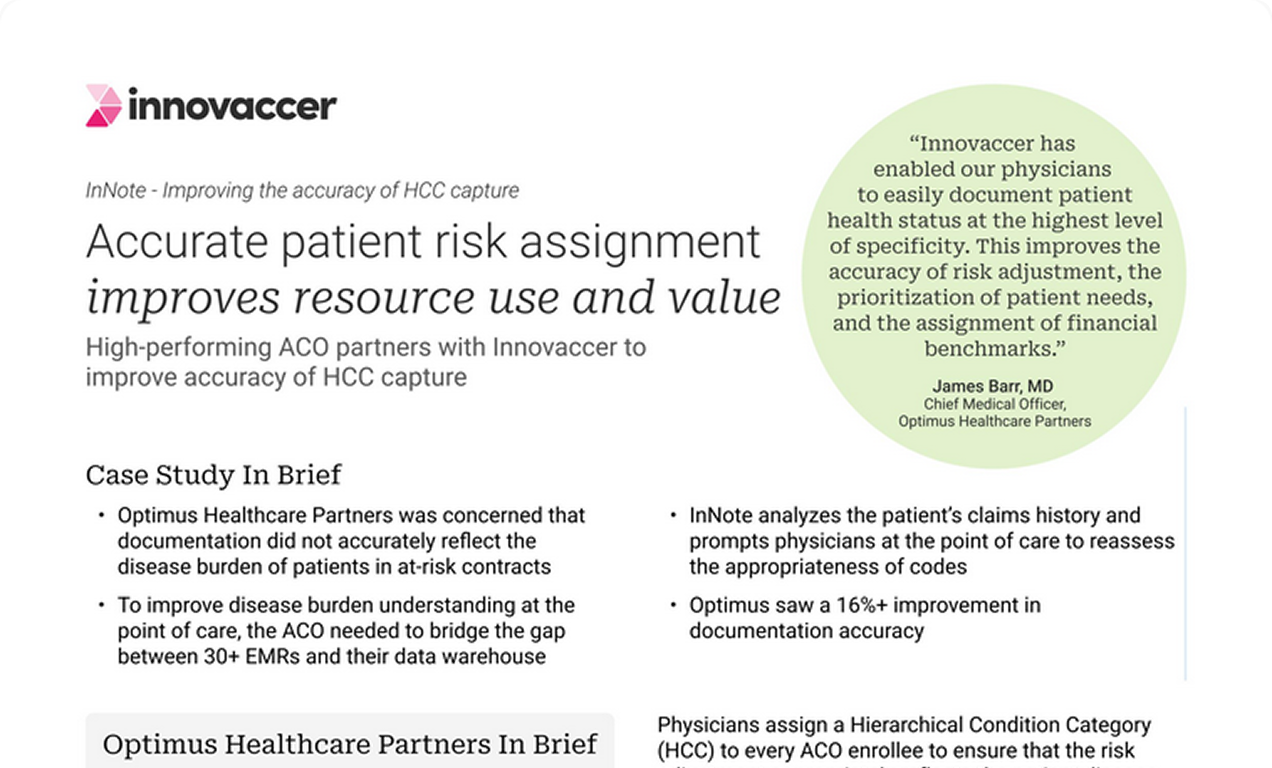Building Blocks of Success: Financial Analytics and Contract Management in VBC Specialty Care

.png)
Specialty practices are at a pivotal juncture as the healthcare landscape is evolving, with most healthcare entities transitioning from fee-for-service to value-based care (VBC) models. While VBC is being incorporated across all healthcare entities, primary care providers have been negotiating VBC agreements with payers for long. However, VBC is particularly challenging for specialty practices due to several factors, including:
- More Competition - Specialty practices operating in a more competitive setting than primary care. When treating a patient with an acute condition, a specialist must make quick clinical decisions that can have major financial consequences.
- Episodic Care - Specialists offer episodic care with little control over patient selection, pre-existing conditions, or compliance factors that affect results, in contrast to primary care's ongoing relationships.
- Inappropriate Benchmarking - Specialists depend on referrals and can't influence patient mix, yet are measured against population-based benchmarks.
- Mismatched Expectations - Specialty-specific outcomes are not captured by standard VBC quality measures intended for primary care, which leads to inflated expectations.
- Expensive Procedures - Small changes in results can result in significant financial fluctuations due to expensive specialty procedures, and the potential for upside risk is limited by episodic relationships.
This is why advanced financial analytics and strategic contract management are necessary for success in specialty VBC.
Financial Analytics
Primary care tracks health across many different patients over time. Specialty practices need different financial analytics. They need to understand how clinical decisions affect money during each patient visit.
Many specialty practices think financial analytics just means looking at results after treatment. The best practices do more. They build systems to identify high-risk patients. These systems look at patient engagement, social factors, and predict problems before they happen. This helps specialists act early and improve outcomes.
Take an orthopedic clinic that does joint replacements. They get paid one amount for the whole 90-day treatment period. They need to track everything: prep before surgery, the surgery itself, care after surgery, rehabilitation, and any problems. They must find out what causes costs to go up or down whether it’s patient selection, surgical techniques, discharge planning or follow-up care.
Contract Management
Many specialty practices sign contracts that look good at first. Later, they find out the quality goals were made for primary care. These goals are almost impossible to meet with specialty patients. A pain clinic needs goals about reducing pain medication and improving function. They shouldn't use general health goals from primary care contracts.
A good specialty contract can make a lot of money. A bad contract can lose millions. Black Book managing partner Doug Brown concluded that the lack of dependable contract systems costs the healthcare industry $157 billion annually. This is why contracts must fit how specialty care really works. Good contracts include:
- Protection for very sick patients.
- Safety nets when patient types change.
- Quality goals that match what specialists actually do, not general health goals.
- Understanding how specialty care connects to other care. Specialty offices work with hospitals and other specialists. They get referrals from primary care doctors. Contracts must consider these connections. Specialists shouldn't be blamed for things they can't control.
How Financial Analytics Help Contract Management
Financial analytics and contract management work better together. Good financial analytics helps negotiate better contracts. It shows what the practice does well and sets realistic goals. Good contracts provide steady money to invest in better financial analytics systems.
This combination helps practices choose the right contracts. They can pick payers that match their strengths and avoid bad deals. Not every contract helps every practice and it’s important to understand that success comes from picking good opportunities, not taking every deal.
Contract management and financial analytics should be core business skills. This means building teams that connect clinical and financial decisions. It means buying technology that gives real-time information. It means hiring or training staff who understand value-based contracts.
The Specialty Advantage
In VBC, specialty practices have benefits that they frequently overlook. Their knowledge enables them to identify targeted approaches to enhance care. Targeted improvements are made possible by their targeted patient groups. Compared to primary care, their brief patient relationships can yield noticeable results more quickly.
The secret is to develop the necessary abilities to take advantage of these benefits without taking any chances. Success means leading change in specialty healthcare, not just joining VBC programs.
.png)
The Future of Analytics Powered VBC
Value-based payments will keep growing in healthcare. Specialty practices that build these skills now will lead their fields in the future. For practices ready to manage it well, specialty care complexity is an opportunity, not a problem.
The question isn't whether financial tracking and contract management matter for specialty practices. They do. The question is whether practices will build these skills early for success or late for survival. Specialty practices that start now will lead their markets. They'll have time to build good tracking systems and negotiate good contracts. Those who wait may make bad decisions under pressure.


.png)






.avif)









.svg)
.svg)

.svg)

